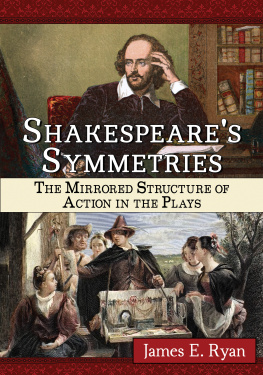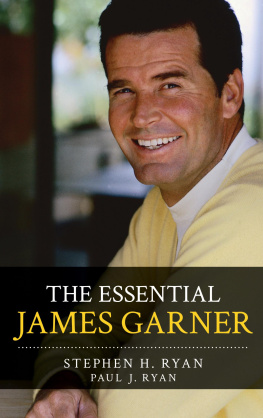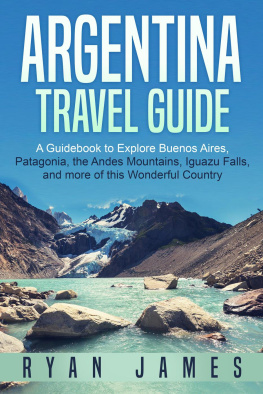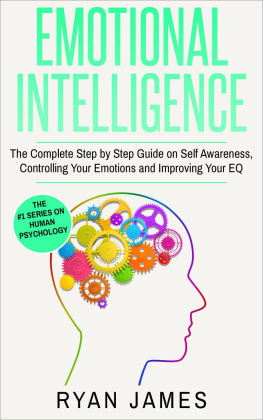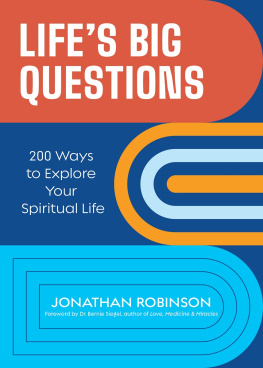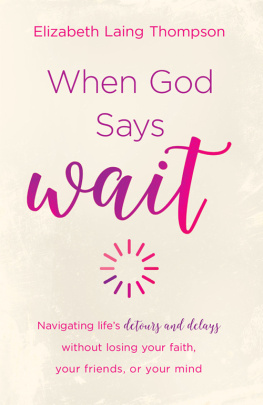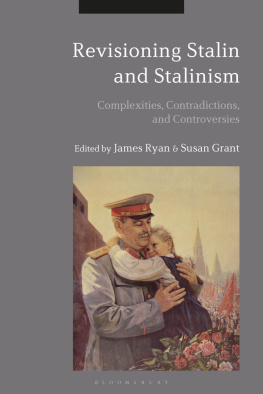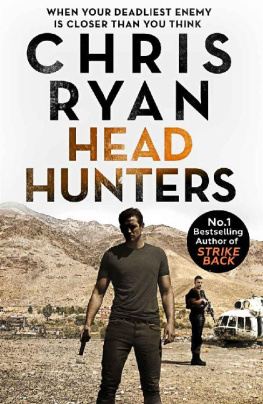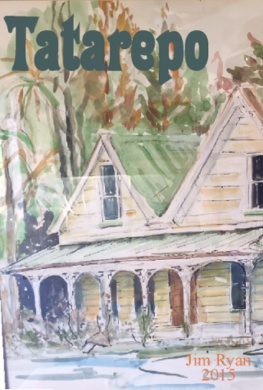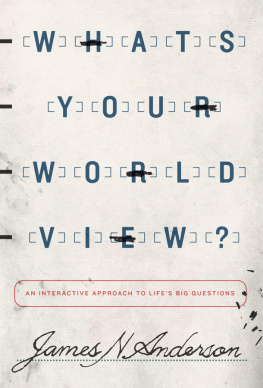James E. Ryan - Wait, what?: and lifes other essential questions
Here you can read online James E. Ryan - Wait, what?: and lifes other essential questions full text of the book (entire story) in english for free. Download pdf and epub, get meaning, cover and reviews about this ebook. year: 2017, publisher: HarperCollinsPublishers, genre: Religion. Description of the work, (preface) as well as reviews are available. Best literature library LitArk.com created for fans of good reading and offers a wide selection of genres:
Romance novel
Science fiction
Adventure
Detective
Science
History
Home and family
Prose
Art
Politics
Computer
Non-fiction
Religion
Business
Children
Humor
Choose a favorite category and find really read worthwhile books. Enjoy immersion in the world of imagination, feel the emotions of the characters or learn something new for yourself, make an fascinating discovery.
- Book:Wait, what?: and lifes other essential questions
- Author:
- Publisher:HarperCollinsPublishers
- Genre:
- Year:2017
- Rating:3 / 5
- Favourites:Add to favourites
- Your mark:
- 60
- 1
- 2
- 3
- 4
- 5
Wait, what?: and lifes other essential questions: summary, description and annotation
We offer to read an annotation, description, summary or preface (depends on what the author of the book "Wait, what?: and lifes other essential questions" wrote himself). If you haven't found the necessary information about the book — write in the comments, we will try to find it.
James E. Ryan: author's other books
Who wrote Wait, what?: and lifes other essential questions? Find out the surname, the name of the author of the book and a list of all author's works by series.
Wait, what?: and lifes other essential questions — read online for free the complete book (whole text) full work
Below is the text of the book, divided by pages. System saving the place of the last page read, allows you to conveniently read the book "Wait, what?: and lifes other essential questions" online for free, without having to search again every time where you left off. Put a bookmark, and you can go to the page where you finished reading at any time.
Font size:
Interval:
Bookmark:
For Doug Kendall
19642015
I n case you are wondering, there are really only five essential questions in life. These are the questions you should ask yourself and others on a regular basis. If you get into the habit of asking these five questions, you will live a happier and more successful life. You will also be in a position, at the end of the day, to give a good answer to what I will call the bonus questionwhich is probably the most important question you will ever face.
Before you roll your eyes or, worse yet, put down this book, let me say this: I completely get that what I just wrote might seem grandiose and even a bit outlandish. My only excuse is that this book started as a graduation speech, and graduation speeches are meant to be grandiose. And if you think what you just read seems grandiose, you should listen to my speech! In any event, I would ask that you not judge me too harshlynot yet, anyway. I can at least promise that the book is more nuanced, and hopefully funnier, than the speech. Its definitely longer.
I gave the speech in my capacity as dean of the Harvard Graduate School of Education. Each year at graduation, I am obliged to offer a few brief remarks, which are usually not as brief as they should be. The graduating students and their families, in turn, are obliged to listenjust as countless others across the country are forced to suffer through a slew of banalities and platitudes while fighting off boredom (not to mention heat stroke) in exchange for a diploma. I thought my speech last year about questions was okay. Not great, but okay.
I never expected the speech would go viral, but viral it went. Millions of people watched a short clip of the speech online. Many offered flattering, generous comments. Some offered disgruntled and downright unflattering comments, most of which I remember, and some of which were very funny. Such is the world of online commentary and my psychemore on the latter in a bit.
The next thing I knew, an editor emailed to suggest I turn the speech into a book. And the next thing you knew, you were reading it, at least up until this point.
So why a speech and then a book about the importance of asking good questions, especially five essential questions? Good question. (Get it?) The answer is, at least in part, personal.
I have always been fascinated, bordering on obsessed, with questions. Like most kids, I asked a lot of questions when I was younger. The problem, especially for my friends and family, is that I never outgrew that habit. I recall, with some embarrassment, many question-filled dinner conversations with my parents and my poor sister, who had to suffer through a barrage of inquiries and follow-ups.
As I grew older, my questions were less of the why is the sky blue sort and more like questions a lawyer might ask when cross-examining a witness, though more persistent than hostile. Or so I liked to think. I would ask my parents why they believed certain things to be true and whether they had any evidence to back up their beliefs. So I asked my mom what proof she had that Ronald Reagan would be a good president, and I asked my dad what proof he had that Reagan would be a lousy president. I asked them both what real evidence they had that the Pope was Gods representative on Earth. Not all of the subjects were so lofty. I was just as ready to cross-examine my parents about more mundane topics, like why they thought it was important that I eat brussels sprouts or why anyone would consider liver and onions to be food.
In short, I was annoying. My father, who never attended college, didnt quite know what to make of my constant questions and the fact that asking questions and throwing a ball seemed to be my only real talents. Unlike him, I was not mechanically inclined and could not fix a thing. I had no practical skills at all. But I never ran out of questions, which is why my father repeatedly told me that I had better become a lawyer. He couldnt imagine me earning a living any other way.
I ultimately followed my fathers advice, and after graduating from college, I attended law school. It fit me like a glove. Law professors, as you may know, mostly teach by the Socratic method, or at least a modified version of it. They will call on law students and pose question after question, testing whether the answers offered by the students hold up to additional inquiry or a slight change of facts. Done well, this series of questions forces students to think hard about the implications of their arguments and to search for general principles of law that can be applied across a number of different contexts.
I felt like I had found my people, which is one of the reasons why, after practicing law for a few years, I decided to become a law professor.
Shortly after I began as a professor at the University of Virginia Law School, which was also the school I attended as a student, my parents visited me in Charlottesville. My father asked if he could sit in on one of my classes. In retrospect, it was a poignant experience, as it was the only time he would see me teach. He died a few months later, suddenly and unexpectedly, of a heart attack.
My dad was a little surprised that I had chosen to become a law professor. He knew I loved practicing law, and he wasnt entirely convinced that being a professor was a real job. But after witnessing the class, which I spent asking students question after question, my father realized that I had managed to find maybe the one job in the world for which I was naturally well-suited. This is what you were meant to do, he told me, addingmostly in jestthat he couldnt believe I was paid to ask students questions that seemed just as annoying as the ones I asked around the dinner table when I was younger.
After teaching law for fifteen years at the University of Virginia, I unexpectedly received an offer to become the dean of Harvards education school. I had been writing and teaching about education law my entire career, so it was not a completely crazy idea to move to an education school. And I cared deeply about educational opportunity, having benefitted greatly from the education I received in my small hometown in northern New Jersey and, later, at Yale and the University of Virginia.
Like my father, my mother did not attend college, yet they both firmly believed in the power of education, and I experienced that power firsthand. Teachers at my public high school in New Jersey helped me get into Yale as an undergraduate, and that experience changed my lifeit opened doors that I didnt even know existed. It also led me to ask a question I have been attempting to answer most of my professional life: Why does our public education system work well for some kids but fail so many others, especially those who are already disadvantaged? I accepted the deanship at Harvard because it seemed like a once-in-a-lifetime chance to work with a dedicated and inspiring group of people, all of whom are intensely committed to improving educational opportunities for students too often neglected.
As I discovered in my first year on the job, deans have to give a lot of speeches. The most important speech is the one at graduation. It is also the most difficult to get right.
I wasnt quite sure what to talk about in my first graduation speech, so I resurrected a speech I gave at my high school graduation. (Yes, I was a little desperate.) The topic of my speech was the highly original one of time, and in high school the entire speech consisted of disconnected quotations from famous people, plucked from Bartletts Familiar Quotations, about the sanctity of timeso Helen Keller on time, Einstein on time, Yogi Berra on time. When I reworked the speech for the Harvard graduating class of 2014, I realized that what I was trying to say thirty years earlier was that we shouldnt waste time being afraidof the past, the future, uncertainty, other people, new ideas, or new situations. I still believe that to be true.
Font size:
Interval:
Bookmark:
Similar books «Wait, what?: and lifes other essential questions»
Look at similar books to Wait, what?: and lifes other essential questions. We have selected literature similar in name and meaning in the hope of providing readers with more options to find new, interesting, not yet read works.
Discussion, reviews of the book Wait, what?: and lifes other essential questions and just readers' own opinions. Leave your comments, write what you think about the work, its meaning or the main characters. Specify what exactly you liked and what you didn't like, and why you think so.


